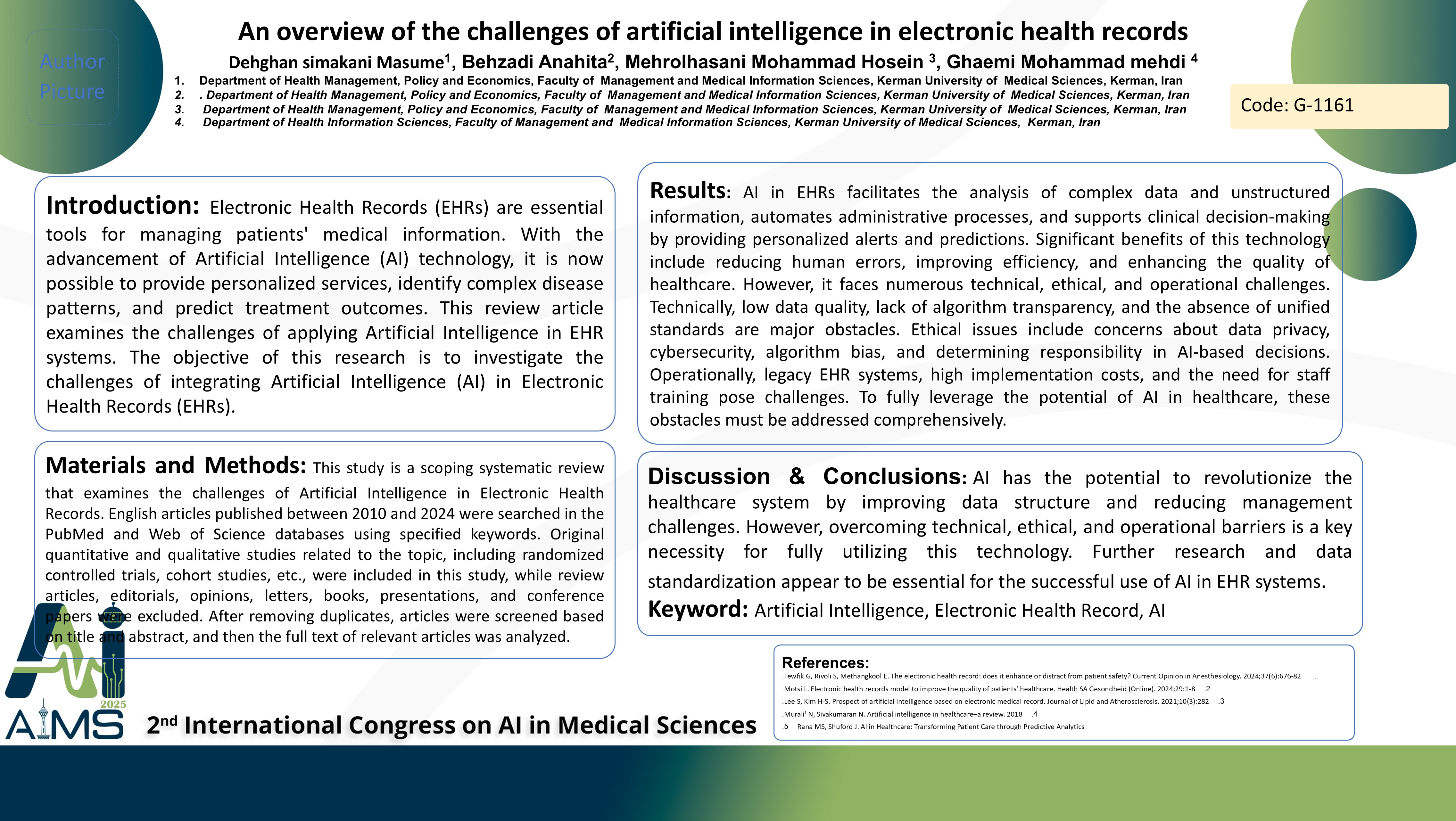An overview of the challenges of artificial intelligence in electronic health records
Code: G-1161
Authors: Masoumeh Dehghan Sikani * ℗, آناهیتا بهزادی, محمد حسین مهرالحسنی, محمد مهدی قائمی
Schedule: Not Scheduled!
Tag: Clinical Decision Support System
Download: Download Poster
Abstract:
Abstract
Background: Electronic Health Records (EHRs) are essential tools for managing patients' medical information. With the advancement of Artificial Intelligence (AI) technology, it is now possible to provide personalized services, identify complex disease patterns, and predict treatment outcomes. This review article examines the challenges of applying Artificial Intelligence in EHR systems. Aims: The objective of this research is to investigate the challenges of integrating Artificial Intelligence (AI) in Electronic Health Records (EHRs). Method: This study is a scoping systematic review that examines the challenges of Artificial Intelligence in Electronic Health Records. English articles published between 2010 and 2024 were searched in the PubMed and Web of Science databases using specified keywords. Original quantitative and qualitative studies related to the topic, including randomized controlled trials, cohort studies, etc., were included in this study, while review articles, editorials, opinions, letters, books, presentations, and conference papers were excluded. After removing duplicates, articles were screened based on title and abstract, and then the full text of relevant articles was analyzed. Results: AI in EHRs facilitates the analysis of complex data and unstructured information, automates administrative processes, and supports clinical decision-making by providing personalized alerts and predictions. Significant benefits of this technology include reducing human errors, improving efficiency, and enhancing the quality of healthcare. However, it faces numerous technical, ethical, and operational challenges. Technically, low data quality, lack of algorithm transparency, and the absence of unified standards are major obstacles. Ethical issues include concerns about data privacy, cybersecurity, algorithm bias, and determining responsibility in AI-based decisions. Operationally, legacy EHR systems, high implementation costs, and the need for staff training pose challenges. To fully leverage the potential of AI in healthcare, these obstacles must be addressed comprehensively. Conclusion: AI has the potential to revolutionize the healthcare system by improving data structure and reducing management challenges. However, overcoming technical, ethical, and operational barriers is a key necessity for fully utilizing this technology. Further research and data standardization appear to be essential for the successful use of AI in EHR systems.
Keywords
Artificial Intelligence, Electronic Health Record, AI
